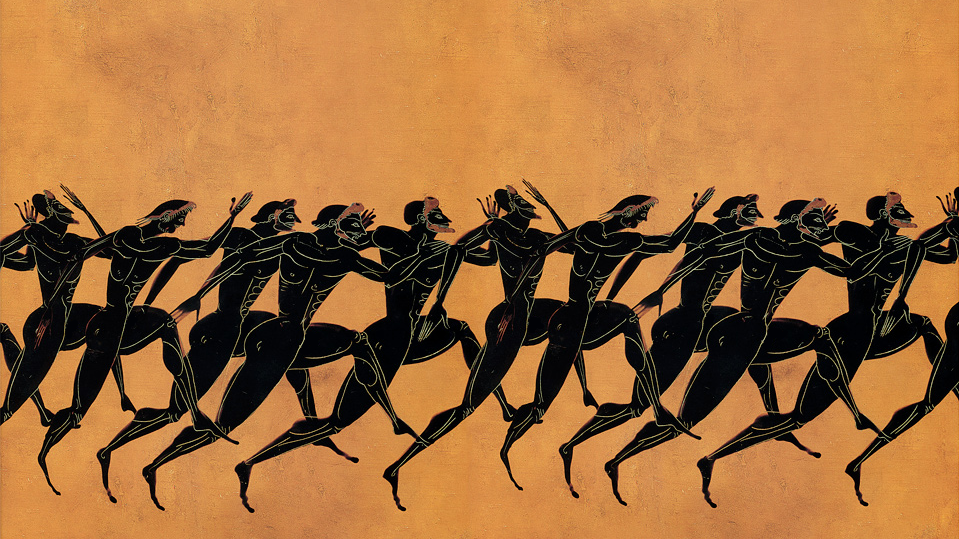Campfire Tales
We’ll never know if primitive humans sat around a campfire telling 30-hour stories, but I find it hard to imagine. The earliest known published novel is the “Epic of Gilgamesh” from around 18th-century BC. It is “of principally historical interest”, meaning “not exactly a page turner by contemporary standards”. Some may disagree, but we can all agree that it’s short.
The long-form story is a technology, and authors from then to now have been perfecting the art of holding a reader’s attention for longer periods of time, meaning more episodes, more issues, more pages. Write your own story, but don’t miss the lessons of history.
It’s Easier When You Know Why
There are a lot of plot structures and “beat sheets” available online. You will recognize the formulas they contain, but most won’t tell you why your characters should be, for instance, failing at the end of the second act. I’ve tried to lay that out for you and given a spoiler-filled example you will definitely want to skip if you haven’t seen Clint Eastwood’s Unforgiven.
Without Further Ado
– Act One: Running away from fate
- At the beginning, protagonist is actively pursuing a goal. Why? Because choosing something over nothing doesn’t reveal character. Continuing down the protagoinist’s original path should be a viable, attractive choice.
- Protagonist reveals unique skills. Why? Because we have to give the world a reason to pursue or follow the protagonist. Why can’t the protagonist leave the problems for someone else to solve?
- Protagonist is offered a (not too) compelling alternative. Why? We need a choice that not every person would take. Character is revealed when your protagonist pays a price for his choices.
– Act Two: Negotiating with fate
- Protagonist temporarily abandons the first goal and chooses the new goal (which should look like a mistake). Why? Because the protagonist is special, and has made a choice the reader would not.
- Protagonist receives a reward for his choice. Why? Because this choice has looked “iffy” from page one. You reader knows that the protagonist shouldn’t go on “one last bank job”. You need to prop this choice up a little bit.
- Reader receives a reward. We get to see the protagonist use his unique skills. Why? Your reader knows deep down that the protagonist isn’t committed enough to win, but wants to see it anyway. Your reader needs to believe that your protagonist can win.
- Protagonist pays a price for negotiating with fate. Why? Because if it were easy, it wouldn’t be a story. Negotiating with fate never works.
– Act Three: Confronting fate
- Protagonist is offered a compelling chance to go back home. Why? Because the protagonist is very special. 99 of 100 would turn back. Their life stories don’t get novelized.
- Now the cost is known, but the protagonist chooses to continue, completely abandoning his original goal. Why? Because the protagonist and audience have been stripped of illusions. The possibility for half measures is gone. The protagonist is out of choices, and your reader is anticipating an inevitable climax.
- Protagonist uses their unique skills again, but in a self-destructive way. They pay the cost to be the boss. Why? Because there is no way back, and the only way forward is through the exact thing your protagonist has been trying to avoid from the beginning of the story.
Would you like to see an example?
If you haven’t seen Unforgiven, stop reading, go watch it now, and your time reading this article will have been well spent whether you write a novel or not. If you have, let’s re-live some of the best parts.
William Munny is pursuing an honest life, raising pigs with his children
—He is invested in a path: to raise his children and honor the memory of his wife.We see (or at least hear about) his unique skill
—which isn’t gunfighting. Will’s unique skill is to be “the meanest goddamn son of a bitch alive … cold as the snow … [having] no weak nerve nor fear”.Will is offered a choice he shouldn’t take
—We have to believe he doesn’t want it AND we have to believe he does choose it. That’s why the pigs are sick and the prostitute’s injuries are exaggerated: to improve the offer. Once the decision is half-way made, Will gets the crap beat out of him in town to make the offer less appealing.But Will still takes the offer
—to leave home temporarily. He tries to straddle the fence.Will uses his unique skill
—He’s the only one able to kill others without destroying himself.Will is rewarded with romantic opportunities and money
Will pays the cost for negotiating with fate
—Ned is tortured and killed, in part because Will tried to share the opportunity with him.Will is offered more money than he agreed to.
Will walks into an impossible situation
—The “son of a bitch” shows up. No more half-way in. Will takes a drink of whiskey to show us that he’s taking the gloves off. There is no William Munny who is both kind to horses and murders people in a bar. He’s realized that now and realized that “the gloves” are what killed Ned. Will sacrificed Ned to try to keep himself spiritually alive.Will gets revenge for Ned and the prostitute—with interest—but he destroys himself
—He loses his home and has to move away from his wife’s grave. This part has to be quick, because the actual story is already over. That’s why the moving away part happens in a text crawl.
And that is, in some respects, the story: don’t tempt fate. That’s something we’ve each said a hundred times, and it’s the plot of every story you’ve ever told, even if you’re only realizing that today.
Now the hard part: go take whatever beloved protagonist you have in mind and teach them a hard lesson.




